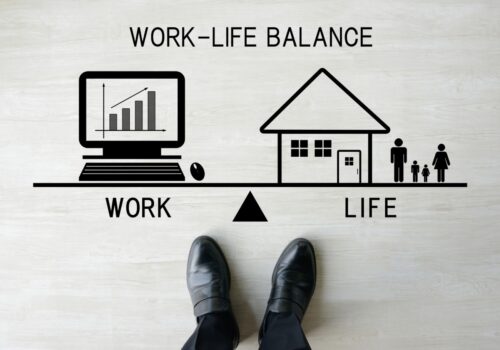Corporate culture is fast evolving into a highly competitive environment. Teamwork, positivity, and productivity are the hallmarks of a good organization. Unfortunately, toxic environments are prevalent worldwide, impacting how employees conduct and express themselves. Psychological safety becomes necessary to protect employees and make them feel safe expressing their opinions and ideas without the fear of intimidation. A psychologically safe workplace is a cornerstone for building trust, enhancing employee well-being, and fostering a culture of innovation and productivity.
What is Psychological Safety?
Psychological safety in the workplace isn’t necessarily a situation where everyone is happy and expressing positivity towards each other. That isn’t a typical situation in any workplace where some animosity or negativity is common. Psychological safety is more about the freedom to brainstorm without backlash, where people will not be punished, humiliated, or criticized for expressing ideas, objections, asking questions, or even making mistakes. It is a productive environment where employees are encouraged to be open in a culture where the management values honesty. Unfortunately, this isn’t the case everywhere. According to a 2019 Gallup poll, 3 out of 10 employees strongly agreed that their opinions count at work.
The Importance of Psychological Safety in the Workplace
Psychological safety in the workplace is essential, not just for employees, but to an organization as well. A work culture that fosters psychological safety reaps several benefits where employees feel they can take the initiative and calculate risks for using the business.
In the absence of psychological safety, employees find it risky to take the initiative for fear of mistakes. It makes them uncomfortable to raise concerns about issues that aren’t taking the company forward. In this scenario, an organization becomes ill-equipped to prevent failure and reduces the engagement and contribution of talent. When employees aren’t wholeheartedly committed to the success of a business, their ideas take a back seat, there is no optimization of processes, no quick resolution of solutions, and a complete shutdown of opportunities to tap into talent.
The Benefits of Workplace Psychological Safety
There are several benefits to psychological safety in the workplace because it takes the organization forward instead of becoming stagnant. It encourages ideas and opens several ways to fast-track projects, helping the company remain in corporate competition. Here are some essential benefits to employee well-being and workplace psychological safety:
- Builds Trust and Encourages Collaboration: Psychological safety builds trust within teams and organizations. When an organization encourages employees to share their thoughts, concerns, and ideas, confidence builds up naturally between team members and management. It results in better communication, increases problem-solving and fosters unity in the workplace.
- It cultivates innovation and creativity: An organization that cares for the mental well-being of its employees encourages innovation and creativity. Employees who know they won’t be ridiculed or punished for suggesting new ideas or challenging the present modus operandi are likelier to think outside the box. Innovation and creativity lead to new products, improved operations, and giving the organization a competitive edge in the marketplace.
- Improves Quality Control and Information Security: Employees are more likely to report quality issues, health and safety concerns, and security lapses in an environment of improved psychological safety. This results in improved quality control and reduces the risk of noncompliance incidents and legal liability issues for the organization or business.
- Employee Well-Being: One of the most essential benefits of psychological safety is an employee’s mental well-being. Mentally secure employees experience higher job satisfaction and lower stress, anxiety, and burnout levels. When psychological safety is absent, it leads to a toxic working environment, with employees constantly fearful of making mistakes.
- Productivity and Performance: Psychological safety is closely linked to employee performance. When individuals feel safe enough to take calculated risks, they are more likely to achieve their full potential. High-performing teams often attribute their success to psychological safety within their work environment. As a result, there is a dramatic impact on performance, leading to the company’s growth, development, and profits.
- Higher Retention Rate: Happier employees are likelier to work in an organization longer for job and mental security. Psychologically safe employees result in a lower churn rate, which reduces the costs of constantly recruiting and training new staff. It also leads to less absenteeism.
Strategies for Cultivating Psychological Safety
Here are some strategies for how managers or team leaders can cultivate psychological safety.
Make Psychology the Top Priority
Incorporating psychological safety at work involves not just the management but an entire team, too. Employees can also face harassment from other colleagues and workplace bullying reported in several organizations worldwide. Hold a psychological safety session, stressing why it matters and how it contributes to a healthier organization. Team leaders can set the stage by being role models using leadership strategies of inclusion. Management should encourage leaders to share their experiences, challenges, and failures. This helps create a culture where it is safe for employees to do the same.
Encourage Feedback
Honest and sincere feedback can work wonders for quality and the health of an organization. Feedback can be in regular one-on-one meetings, anonymous suggestion boxes, or online platforms where employees can voice their concerns. Clear that feedback is valued and that action will be taken in response to valid concerns.
Establish Rules on How to Handle Mistakes and Failures
A good management focused on productivity and innovation will allow experimentation and reasonable risk-taking. Team leaders should communicate to employees that mistakes are an opportunity for learning and growth, sharing their mistakes and lessons learned from them. Such practices encourage innovation, initiative, and creativity instead of sabotaging it. Do it subtly and courteously when expressing disappointment, combining it with appreciation.
Promote Inclusivity
Inclusive organizations are more likely to foster psychological safety. Ensure that diversity and inclusion are not just buzzwords but integral parts of your company’s culture. Actively seek out and include underrepresented voices and perspectives in decision-making processes.
Encourage Productive Conflict
Conflict in the workplace need not be of the toxic kind. Dialogue and debate should be promoted to resolve work conflict in a productive manner. Moreover, encouraging different opinions might lead to a healthy consensus, converting to a better product or a project well done. Alternately, unhealthy conflicts should be resolved as fast and as amicably as possible rather than let them fester to erode psychological safety. Encourage open communication and offer conflict resolution resources to employees.
Support Employee Well-being
An employee’s mental well-being is integral to an organization’s well-being. An organization should always stress work-life balance to secure the mental health of its employees. Resources should be provided to employees to manage stress and seek counselling when needed. This can be done through counselling sessions, meetings, stress management seminars, and other forms of reducing stress in the workplace.
Acknowledge Your Employees and Their Contributions
Celebrating the successes and milestones individuals and teams achieve speaks volumes about how an organization invests in an employee. Employees who see their achievements acknowledged and rewarded feel valued and motivated to continue contributing to the organization.
Conclusion
Psychological safety at work is a critical element that impacts the well-being and productivity of your organization. It is the foundation on which trust, innovation, and collaboration thrive. A happy employee is productive, and implementing these strategies for ensuring psychological safety in the workplace will eventually lead to organizational growth and success.
















